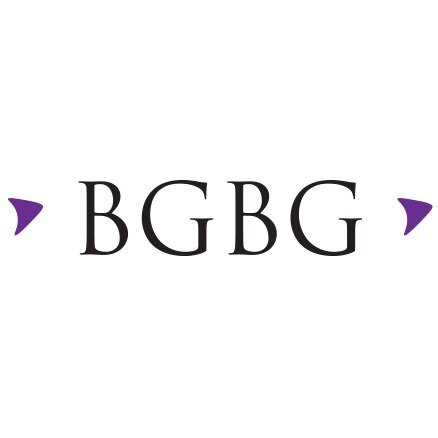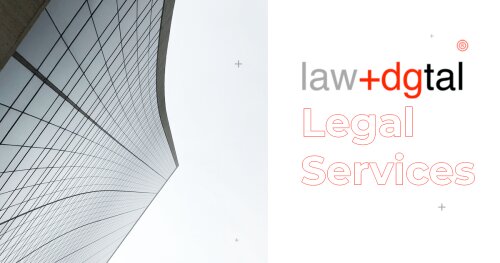Best Patent Lawyers in Mexico City
Share your needs with us, get contacted by law firms.
Free. Takes 2 min.
List of the best lawyers in Mexico City, Mexico
About Patent Law in Mexico City, Mexico
Patent law in Mexico is governed by the Mexican Institute of Industrial Property (Instituto Mexicano de la Propiedad Industrial, IMPI). As a federal entity, Mexico City's regulations on patents align with national laws that protect inventions and grant inventors exclusive rights to their creations. A patent in Mexico can cover inventions that are new, involve an inventive step, and are susceptible to industrial application. The primary objective of patent protection in Mexico is to stimulate innovation and economic growth by granting inventors a legal monopoly over their inventions for a limited time.
Why You May Need a Lawyer
Seeking legal advice in the field of patent can be crucial in a variety of situations, including:
- Ensuring the novelty and patentability of your invention before filing an application, which requires a thorough search and understanding of existing patents.
- Navigating the complex patent application process, including drafting and filing applications correctly with IMPI.
- Defending against patent infringement claims or enforcing your own patent rights against unauthorized use by third parties.
- Negotiating licensing agreements to commercially exploit your patent.
- Handling the renewal and maintenance of patents to ensure continued protection.
Local Laws Overview
Key aspects of local laws related to patents in Mexico City include:
- Patent applications must be submitted to IMPI, which examines the application thoroughly to ensure it meets all statutory requirements.
- Patents in Mexico have a term of 20 years from the filing date, subject to payment of maintenance fees.
- Mexico is a member of various international agreements, including the Patent Cooperation Treaty (PCT), which facilitates patent protection in multiple countries.
- The law provides exceptions to patent rights under certain conditions, such as the experimental use of a patented invention.
- In case of infringement, a patent holder can seek remedies such as injunctions, damages, or seizure of infringing goods.
Frequently Asked Questions
What is a patent in Mexico?
A patent in Mexico is an exclusive right granted by the Mexican government to an inventor for a new, useful, and non-obvious invention, allowing them to exclude others from making, using, or selling the invention for a limited period.
How long does it take to obtain a patent in Mexico?
The patent examination process can take several years, depending on the complexity of the invention and the workload of the patent office, but typically ranges from two to five years.
Can I apply for a patent in Mexico if I have already filed in another country?
Yes, you can apply for a patent in Mexico if you have filed in another country, especially through the Patent Cooperation Treaty (PCT) mechanism, which streamlines international patent protection.
How does patent infringement work in Mexico?
Patent infringement occurs when someone makes, uses, or sells a patented invention without permission. Patent holders can take legal action against infringers to seek remedies such as damages or injunctions.
What are the requirements for a patent in Mexico?
An invention must be novel, involve an inventive step, and have industrial applicability to be patented in Mexico. Additionally, the application must include a detailed description of the invention and claims defining the scope of protection.
Can I sell or license my patent?
Yes, patent holders in Mexico can sell or license their patents to others, allowing them to use the patented invention under agreed terms.
What happens if I miss a maintenance fee payment?
Missing a maintenance fee payment can lead to the lapse of your patent rights in Mexico, although there may be a grace period for late payments with additional fees.
Is software patentable in Mexico?
Software as such is not directly patentable in Mexico. However, inventions that incorporate software and provide a technical solution may be eligible for patent protection.
Can someone challenge my patent after it is granted?
Yes, third parties can challenge the validity of a patent through opposition or nullity actions if they believe it does not meet legal requirements.
What should I do if I receive a notice of patent infringement?
If you receive a notice of patent infringement, it's crucial to consult with a patent lawyer immediately to assess the situation and determine the best course of action, which may include negotiating a settlement or preparing a defense.
Additional Resources
Here are some resources that can provide further assistance with patents in Mexico:
- Mexican Institute of Industrial Property (IMPI): The official government body responsible for patent registration and protection in Mexico.
- World Intellectual Property Organization (WIPO): Offers resources and support for navigating international patent applications and protections.
- National Chamber of Industry (CANACINTRA): Provides support and information for industrial property rights and patent issues for businesses in Mexico.
- Legal Libraries: Consulting legal texts and case studies can provide insights into the application of patent laws in real-life scenarios.
Next Steps
If you need legal assistance with patents in Mexico City, consider the following steps:
- Consult with a specialized patent attorney who has experience working with the IMPI and understands local and international patent laws.
- Gather all documentation and details related to your invention to streamline the consultation process with your legal adviser.
- Research and reach out to legal firms or organizations that specialize in intellectual property protection in Mexico.
- Consider joining professional organizations or attending workshops that offer networking opportunities and insights into the patenting process.
Lawzana helps you find the best lawyers and law firms in Mexico City through a curated and pre-screened list of qualified legal professionals. Our platform offers rankings and detailed profiles of attorneys and law firms, allowing you to compare based on practice areas, including Patent, experience, and client feedback.
Each profile includes a description of the firm's areas of practice, client reviews, team members and partners, year of establishment, spoken languages, office locations, contact information, social media presence, and any published articles or resources. Most firms on our platform speak English and are experienced in both local and international legal matters.
Get a quote from top-rated law firms in Mexico City, Mexico — quickly, securely, and without unnecessary hassle.
Disclaimer:
The information provided on this page is for general informational purposes only and does not constitute legal advice. While we strive to ensure the accuracy and relevance of the content, legal information may change over time, and interpretations of the law can vary. You should always consult with a qualified legal professional for advice specific to your situation.
We disclaim all liability for actions taken or not taken based on the content of this page. If you believe any information is incorrect or outdated, please contact us, and we will review and update it where appropriate.















